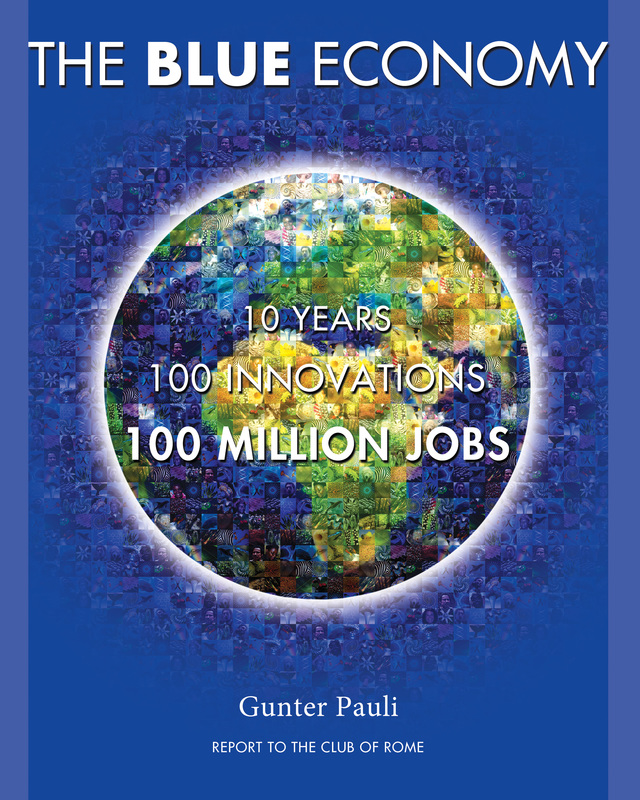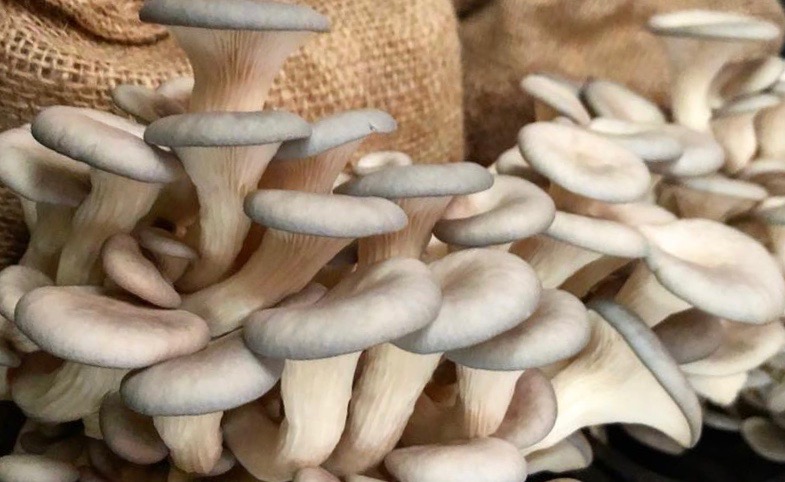The Blue Economy changed the Reality for Small Manufacturers, Farmers, and Associations
Gunter Pauli is an entrepreneur, global speaker, economist, innovator and author whose projects and activities span the whole world. He is most widely known for his book The Blue Economy, which he wrote in 2010, proposing a new type of business model in order for our society to become more sustainable.
The Blue Economy philosophy is based on three guiding principles:
- Be continually inspired by nature
- Change the rules of the game
- Focus on what is locally available.
Arlette Diederiks
AD: What/who inspired you in your way of thinking?
GP: In the past I was fighting for the Green Economy. It was my dream, but the reality is that in the Green Economy everything that is good for you and good for the environment is expensive. That means the Green Economy is only for the rich. That is not what I intended, because the Green Economy was supposed to be for everyone. So, why was it not succeeding? Everyone was saying: “Well, these local producers can only produce small-scale; they don’t have the economies of scale that permits them to sell for a lower price”. Then my thought was, if we only want to compete on the basis of a low price against China, Brazil etc. you’re never going to be the cheapest if you want to produce organic, fair and with nature in mind. You are always going to be expensive. Unless you’re cutting corners, meaning cheating! And that is not the way forward, so we had to redesign the economic system. So the idea of The Blue Economy was born, which changed the reality for small manufacturers, farmers, and associations. This model is very simple: you use what you have, you generate value, you respond to the needs of people, you are not obsessed with efficiency and low cost. Instead, you are committed to resilience in your community. If there is no waste you can generate more value, you can create more jobs.
AD: I remember the case, in one of your Ted Talks, of coffee beans, in which you explain that only 0.2% of the coffee plant is actually used to make coffee. The rest of the plant is simply not used and discarded, which is obviously an enormous loss in terms of economic value. You proposed a different approach and have shown that it works. Can you please explain?
GP: It is actually quite strange when you are running a business and you don’t make full use of the resources available. After all, you are not getting out of your resources all that you can get. But that is what is happening in the current business model, in which the focus is on one core business, and not on multiple. We need to make a shift to a portfolio of businesses that generate multiple benefits for business, society and respects nature so it can reproduce not only now, but in the long term as well. Our project of the coffee beans uses coffee bean waste as fertile ground to grow mushrooms on. It shows we can have better food, more food, it’s energy efficient, we create jobs and are cutting carbon emissions. Coffee bean waste can also be ground and used in clothing and shoes. That is amazing, that you can use what is considered as waste to make a new product.

From coffee bean waste to mushroom growth.
AD: What can we learn from nature?
GP: In nature there is no such thing as waste. Everything is used as everything has a value within the system. This creates cascading flows: that what is not used by one, can be used by another. This optimization principle of the whole that nature has been using for millions of years cultivates the best opportunities for the entire system. This is the approach that the Blue Economy uses. The current linear business model does not make full use of what is available. A non-linear business model approaches a growing business and responds to people’s needs.
Nature is amazing and we can learn so much from observing what she has proven to work for so much longer than that we humans have been around.
AD: The Blue Economy has a different approach to sustainability than that of the circular economy outlined by Ellen McArthur. Can you please explain the difference between the two?
GP: The Circular Economy is based on the current linear business models, meaning that within the framework it is an excellent solution. But it still focuses on businesses that center on one core business. The Blue Economy shows that having a portfolio of businesses can create more value, not only in economic terms, but for society and nature as a whole.
AD: You founded ZERI (Zero Emissions Research and Initiatives) in 1994. Can you please tell us more about this organization and what it does?
GP: ZERI is a global network of creative minds taking on various challenges. These members try to find sustainable solutions for society, using science as a starting point for new ideas. Currently, there are 200 projects being executed worldwide, based on the principles of The Blue Economy. All these projects together have generated approximately 3 million jobs. We have proven that our model works in creating value for the people, the businesses and the environment.
AD: We are currently living with the COVID-pandemic and some have argued that the lockdowns have helped nature come back. But at the same time there is this massive increase in use of single-use masks, gloves, take away containers etc. How do you think COVID has influenced our way of thinking about nature and sustainability?
GP: I hope that people will realize that a pandemic such as the current one will happen again if we keep on treating nature as we are. But at the moment most people are still too concerned with what is going on now. Media plays a big role in this concern, as most of the messages being put out there are based on fear. People are afraid, they are scared of the virus, they are afraid of dying. When people are afraid, they don’t think about the long-term, they just want to get through what affects them now. And climate change or the environment is not on their minds right now. But you have to ask yourself, why is there so much focus on testing, on getting vaccinated. Why is nobody speaking about being healthy, eating healthy, being out in nature. You always need to keep asking questions. You might not get an answer, but keep asking questions anyway.
We would like to thank Gunter Pauli for making the time to talk to Arlette about The Blue Economy and how we can find the solutions to our current environmental problems in nature. I hope he will be an inspiration to you as he is to all of us by showing that we can make a difference and fight for a better, more sustainable world.

Trackback: best eft cheats
Trackback: STD Test
Trackback: cactus labs mushroom vape
Trackback: สมัคร เว็บพนัน ออโต้ กับ LSM99
Trackback: โรงงานผลิตสายรัดพลาสติก
Trackback: เน็ตบ้าน ais